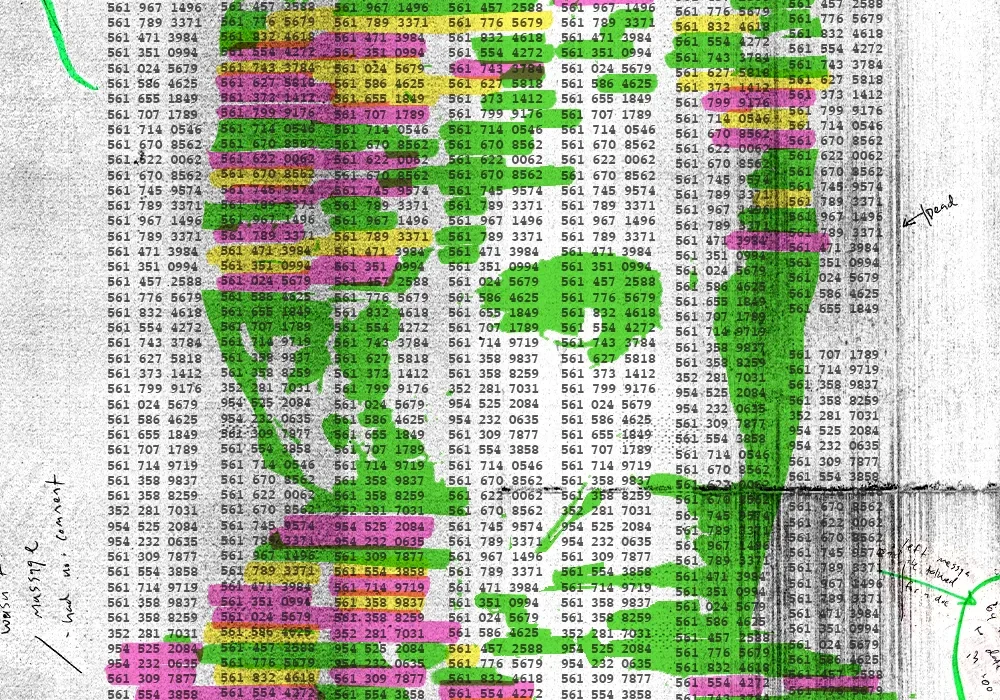
Exposed: Epstein Island Visitors Tracked by Cell Data.
A WIRED investigation tracked more than 200 cell phones to Epstein Island between 2016–2019 using ad-based surveillance data. The findings expose the digital footprint of powerful visitors, while the U.S. government remains silent, files stay redacted, and privacy laws prove powerless. The case reveals how surveillance capitalism now targets everyone, while justice for the elite remains elusive.
A groundbreaking WIRED investigation leveraged leaked cell phone data to reveal over 200 devices present on Jeffrey Epstein’s private island, highlighting not only elite visitor patterns but the staggering failure of U.S. privacy protections. Paired with the ongoing fallout of missing Epstein files, the persistent culture of impunity for the powerful, and suspicious reversals of former public crusaders, this post explores what deeper truths may remain hidden—and how surveillance capitalism and secrecy converge to shield the influential.
Imagine a paradise hiding a nightmare—a Caribbean island where laws, apparently, don’t apply to the elite. That’s the setting for today’s revelation: a WIRED scoop showing how more than 200 cell phones visited Epstein’s private sanctuary between 2016 and 2019. As someone who has always wondered who shows up where they shouldn’t, it’s chilling how easily this data was gathered, and what it says about power, privacy, and the thin line between secrecy and justice. But this story is more than a mere expose. It’s about how elusive the truth remains—even when trails are stamped into our digital world.
What Happened to the Island? Tracking an Elite Footprint in the Shadows
If you’ve ever wondered what really happened on Epstein Island, you’re not alone. The latest Epstein case developments have left many people feeling frustrated and disappointed. Despite years of speculation and promises of transparency, the truth remains elusive. The government’s silence, paired with sporadic and heavily redacted document releases, has only fueled more questions. It’s a situation that feels less like a resolved case and more like a shadowy thriller—except the stakes are real, and the consequences reach far beyond gossip columns.
One of the most revealing pieces of the puzzle comes from a WIRED investigation that used leaked cell phone data to track over 200 unique devices visiting Epstein Island between 2016 and 2019. This wasn’t just a random period—it was after much of Jeffrey Epstein’s legal trouble had already begun. The data paints a picture of elite visitor patterns, but here’s the catch: the identities behind those devices remain mostly hidden. The intrigue only deepens as the public is left to wonder who was really there and what they might have been doing.
Let’s pause for a second. Who among us hasn’t wondered if “private” really means anything anymore? In the age of Surveillance Capitalism and the Death of Privacy, the answer seems to be a resounding “not much.” The WIRED report is a perfect example of how easily our digital footprints can be traced, mapped, and exposed. It’s not just about catching the bad guys; it’s about the uncomfortable reality that our privacy laws are full of holes. Research shows that the absence of clear, enforceable privacy protection in the U.S. is what made these leaks possible in the first place.
‘In the era of mass data, the powerful aren’t necessarily protected—unless the laws let them be.’ – Jane Harman
What’s striking is that, despite the scale of the leak, the government’s response has been almost nonexistent. There have been a few document drops, but they’re often so redacted that they raise more questions than answers. The Department of Justice and FBI have officially closed the case, concluding that Jeffrey Epstein’s suicide was just that—a suicide. They’ve also stated there’s no evidence of a so-called Epstein client list implicating powerful figures. Yet, the public’s curiosity hasn’t faded, partly because the released files are so incomplete and partly because the whole affair feels like a masterclass in how not to do transparency.
It’s not just about the names on a list. The real story is how easily the movements of the elite can be tracked—and how little recourse there is for anyone, famous or not, when it comes to digital surveillance. The legal void around digital surveillance enables mass data extraction, and this isn’t a hypothetical concern. The WIRED investigation didn’t break any laws to get this data; it simply took advantage of the fact that our privacy protections are, frankly, outdated and weak.
This is the heart of Surveillance Capitalism and the Death of Privacy. We’re living in a world where our devices are constantly pinging, tracking, and recording where we go. On Epstein Island, those pings became a map of influence and secrecy. But if it can happen there, it can happen anywhere. The law neither shields the public nor robustly scrutinizes the elite, raising critical privacy and transparency issues that go far beyond this one scandal.
The frustration is palpable. Figures who once championed honesty and accountability—like Bonino, Patel, and Pam Bondi—have reversed course, leaving many to wonder what kind of pressure or fear could drive such a shift. The lack of meaningful investigation into high-profile figures, the endless redactions, and the government’s near-total silence all point to a system that’s more interested in protecting itself than in uncovering the truth.
So, What Happened to the Island? The answer, for now, is hidden in the shadows—tracked by cell data, obscured by legal loopholes, and wrapped in a culture of secrecy that shows no signs of lifting. The only thing that’s clear is that privacy, for the powerful and the public alike, is more fragile than ever.
Silence, Reversals, and the Vanishing Quest for Accountability
If you’ve been following the twists and turns of the Epstein saga, you probably feel a familiar sense of frustration by now. For years, the public was promised answers—real accountability, a full Epstein client list, and a reckoning for those who enabled or participated in his crimes. But as the dust settles, what’s left is a trail of silence, abrupt reversals, and a growing sense that the truth is being buried deeper than ever.
The Crusaders Who Walked It Back
Remember when names like Pam Bondi, Kash Patel, and Bonino were hailed as the ones who would finally crack the case? Each of them, at different points, claimed to have seen major evidence or to be pushing for transparency in the Pam Bondi Epstein files. But now, almost in unison, they’ve reversed course. Bondi, once vocal about the existence of damning files, has since distanced herself, citing “sensitive content” and legal restrictions. Patel and Bonino, too, have quietly stepped back, some citing threats or pressure behind the scenes.
It’s hard not to notice the pattern. These aren’t just minor players—they were once at the center of the push for answers. Their sudden silence raises the question: what could possibly force such a dramatic about-face? As one former prosecutor (who asked to remain anonymous) recently confided to friends over dinner, “Fear is the only plausible explanation for a total reversal at this level of public scrutiny.” It’s a chilling thought, but it’s hard to ignore.
Redacted Files, Missing Answers
The Senate demand Epstein files story is another sore spot. Senator Ron Wyden and the Senate Finance Committee have been relentless in their calls for the Treasury Department to hand over unredacted Epstein financial documents. So far, what’s been released is a patchwork of blacked-out pages—files so heavily redacted that they reveal almost nothing new. There’s still no real Epstein client list, no clear trail of financial backers, and certainly no bombshells.
Wyden summed up the public’s frustration with a simple challenge:
‘True courage would be releasing it all and letting the chips fall where they may.’
But that courage, it seems, is in short supply. The DOJ FBI review Epstein findings have only deepened the disappointment. Both agencies confirmed that Jeffrey Epstein died by suicide. They also stated there was no evidence of a secret client list implicating powerful figures, and no new charges have been brought against uncharged third parties. Ghislaine Maxwell, Epstein’s closest associate, is serving a 20-year sentence for child sex trafficking, but beyond that, the trail goes cold.
Conspiracy or Coverup?
The lack of transparency has only fueled speculation. Why are the Pam Bondi Epstein files so redacted? Why does the Senate demand Epstein files keep hitting a wall? Research shows that despite multiple probes, the core of Epstein’s network remains obscured, raising suspicions of intimidation and ongoing coverup. Institutional actors seem more interested in protecting secrets than restoring public trust.
It’s not just conspiracy theorists asking these questions anymore. Even mainstream voices are beginning to wonder if the circle of silence is less about privacy or legal process and more about shielding the powerful. Every time a new batch of files is released—only to reveal more black ink than information—the frustration grows.
The Erosion of Trust
All of this has a cost. The public’s faith in government, law enforcement, and the justice system is taking a hit. When once-celebrated crusaders like Bondi, Patel, and Bonino reverse themselves under mysterious circumstances, it sends a signal: maybe the truth is just too dangerous to tell. Maybe the system really is rigged to protect its own.
For now, the Epstein client list remains a phantom, and the files that could provide answers are locked away or blacked out. As the circle of silence tightens, the quest for accountability feels more distant than ever.
Surveillance Capitalism, Dollar Devaluation, and Why the Game is Rigged
If you’ve been following the Epstein investigation—or, more accurately, the slow-motion closure of it—you know the feeling: disappointment, frustration, and a sense that the real story remains hidden. The latest developments, with high-profile figures like Bonino, Patel, and Pam Bondi reversing their stances, only deepen suspicions. These were once the loudest voices demanding transparency in the Epstein financial investigations, but now they’ve gone silent or even recanted. It’s hard not to wonder: what kind of pressure, what kind of fear, could make people abandon their own reputations and principles? The implication is chilling—maybe the truth about Epstein financial backers is so explosive, it could shake the very foundations of government.
But here’s where the story gets even more unsettling. The same tools used to track Epstein Island visitors—cell data, surveillance, digital breadcrumbs—are now aimed at every American. This is the heart of Surveillance Capitalism and the Death of Privacy. It’s not just about catching criminals or keeping us safe. It’s about control. As Edward Snowden put it,
‘Surveillance isn’t about safety; it’s about control. And the more you lose, the less you notice.’
We’re living in a time when the ICE budget surge is impossible to ignore. The numbers are staggering: ICE’s budget has exploded from $8 billion to $75 billion—an 800% increase. The military budget? Up another $200 billion. These aren’t just numbers on a spreadsheet. They’re a sign of a surveillance state growing ever larger, even as our privacy shrinks. Meanwhile, new travel restrictions, mandatory social media disclosures, and tightening visa requirements are becoming the norm. The message is clear: trust is out, suspicion is in.
And while the government claims these measures are for our protection, research shows that surveillance and bureaucracy often expand in the name of security, while public protections and economic health wither. The powerful shield each other, and the rest of us pay the price. The Epstein investigation is just one example—an elite scandal where the truth is buried, and the public is left with more questions than answers.
Let’s not forget the economic side of this equation. The M2 money supply—the broadest measure of money in the U.S.—has been climbing for 19 straight months, up 4.5% year-over-year. That’s down from the COVID-era surge, but it’s still a warning sign. Persistent inflation eats away at savings and wages, especially for the middle class. Some analysts warn that, to service the national debt, the dollar might need to be devalued by as much as 90%. Imagine what that does to your purchasing power, your retirement, your sense of stability.
Meanwhile, the government keeps secrets. The Treasury Department holds back key files on Epstein financial backers. The DOJ and FBI insist there’s nothing more to see. And the cycle continues: secrecy for the powerful, scrutiny for everyone else. Economic and privacy crises are tightly entwined—and both serve entrenched interests.
Sometimes, the contrast is starkest when you leave the country. One of the speakers, traveling in Brazil, was struck by the cost of healthcare: $150 for comprehensive blood work, compared to nearly $2,000 in the U.S. The U.S. claims to lead the world, but at what cost to freedom, prosperity, and privacy? Is the trade-off worth it?
So where does this leave us? Surveillance capitalism is winning. The dollar is at risk. The rules of the game are written by and for those already at the top. Justice, privacy, and even national character are being reshaped by secrecy and control. Maybe the real lesson of the Epstein investigation is that when surveillance and secrecy become the norm, the game is already rigged—and the rest of us are just playing along, whether we realize it or not.
TL;DR: Cell phone data leak exposes over 200 devices on Epstein Island, raising new questions about privacy, powerful elites, and why justice seems so often out of reach. What we need now is not just more exposure—but real accountability.
EpsteinCaseDevelopments, DOJFBIReviewEpstein, EpsteinClientList, EpsteinFinancialBackers, SurveillanceCapitalismAndTheDeathOfPrivacy, PamBondiEpsteinFiles, WhatHappenedToTheIsland?, JeffreyEpsteinSuicide, EpsteinSexTrafficking, EpsteinInvestigation,cellphonedataleakEpstein, elitesurveillanceexposure, EpsteinIslandvisitortracking, NearIntelligencelocationdata
#EpsteinCase, #SurveillanceCapitalism, #DataPrivacy, #DOJReview, #SexTrafficking, #EpsteinIsland, #FinanceRevelations, #PoliticalCorruption, #PrivacyMatters, #BreakingNews,#EpsteinIsland, #CellPhoneTracking, #SurveillanceCapitalism, #EliteAccountability, #PrivacyCrisis, #NearIntelligence, #GhislaineMaxwell, #FBIInvestigation, #RedactedFiles, #DigitalFootprint

